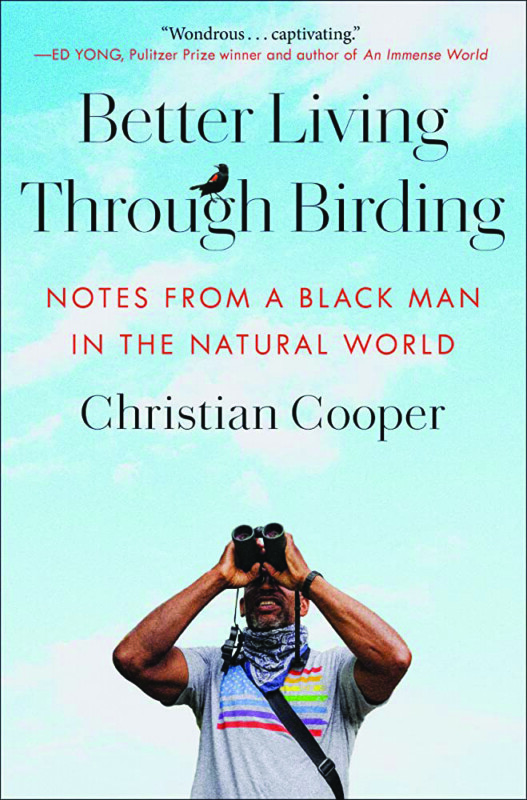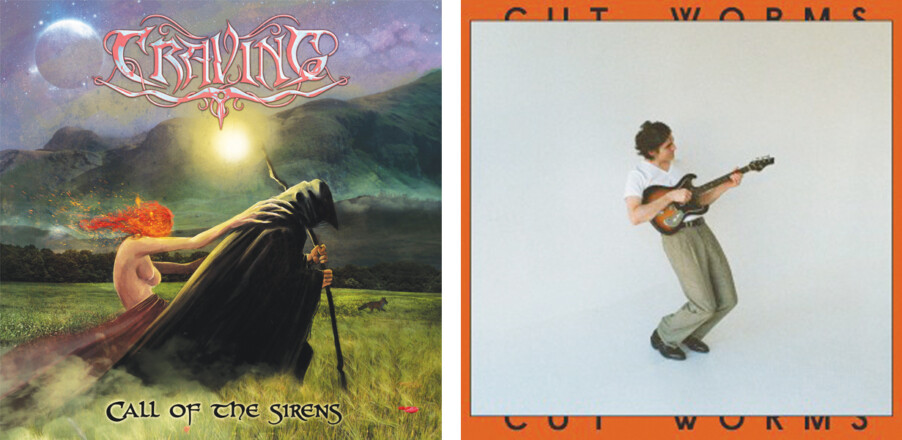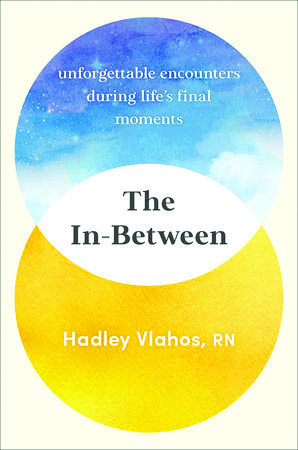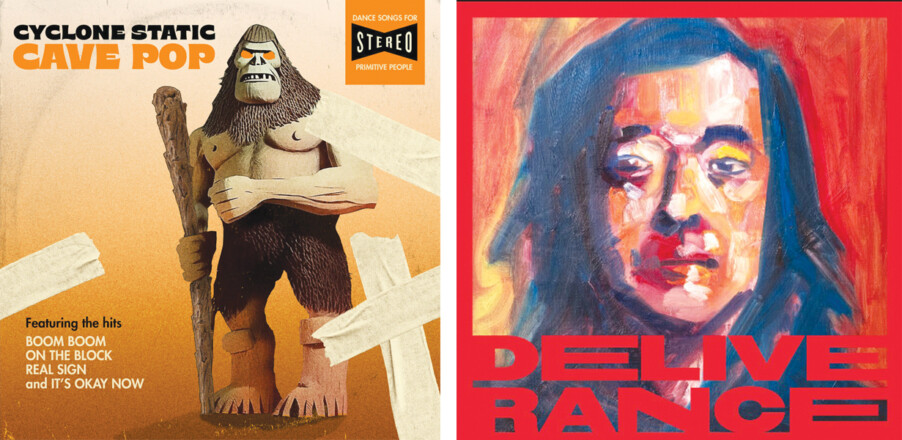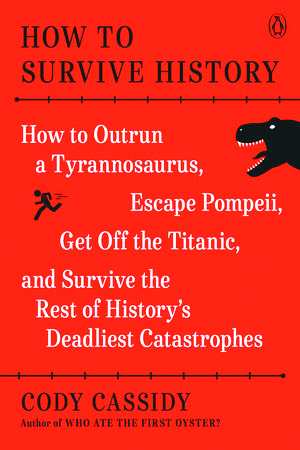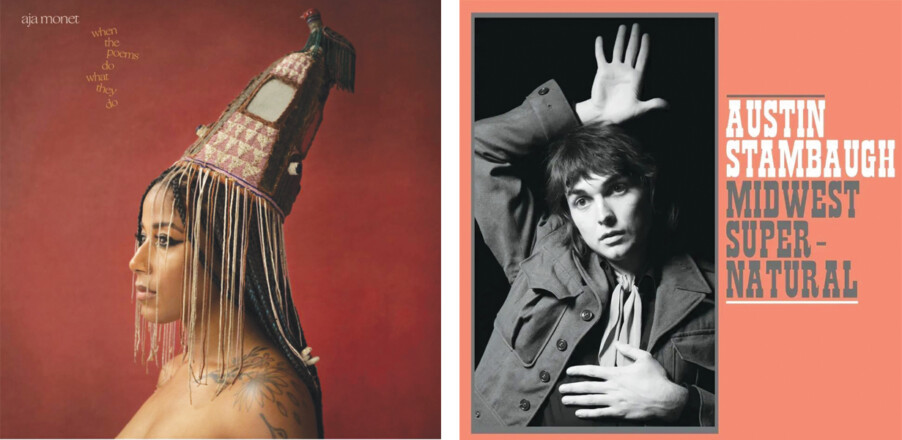Better Living Through Birding, by Christian Cooper (Random House, 282 pages)
“Writing a memoir is akin to taking off one’s clothes in public” is how Christian Cooper begins his acknowledgments, wherein he thanks everyone who made his memoir possible, with one extremely notable exception: the Central Park “Karen” who vaulted him to fame.
Cooper is the bird enthusiast who was out early on Memorial Day 2020 looking at birds when an unleashed dog came running in his direction. He politely asked the dog’s owner to leash her dog, as the law requires in the part of the park called the Ramble. When she said she wouldn’t — that her dog needed exercise — he started filming their exchange, which later went viral because the woman called the police, falsely reporting that Cooper, who is Black, was threatening her.
The incident was bad enough on its own, but was magnified because of something else that happened that day — the killing of George Floyd in Minneapolis. And within days Cooper had become something of a folk hero, an example of the ordinary dangers of being Black while driving, while jogging, while birding or doing any number of ordinary activities. He became famous while the dog walker, Amy Cooper, became infamous. And he has leveraged that fame into an enchanting memoir that has surprisingly little to do with what happened that day, but instead is an ode to the natural world and an account of growing up Black, gay and intellectual in 1970s America.
The first sign of how well-crafted this memoir is comes in the first chapter, “An Incident in Central Park.” He describes running through the park alone and says, “I know what this looks like.”
“My sneakers are old and muddy, my jeans in need of a good washing, and my shirt, though collared, could at best be described as unkempt. I am a Black man on the run. And I have binoculars.” As it turns out, the “incident” is not what we think, but something entirely different, related to birding. It is a smart, charming entry into Cooper’s story, which has a mystery at its heart: How, exactly, does an otherwise normal person get so rabidly obsessed with birds?
In Cooper’s case, birds were, like science fiction and comic books, a mental sanctuary as he was growing up on Long Island in a lower-middle class family where intellectual pursuits were prized. When he was 9 he attended a summer woodworking class, where he was given a choice of making a footstool or a bird feeder. He picked the bird feeder, and the first bird to come to that feeder, a red-winged blackbird, became his “spark bird,” the creature that began his birding obsession.
After carefully navigating high school while keeping his sexuality secret, Cooper went to Harvard on a scholarship, where he finally was able to come out as gay. (When he told his father, the father asked if he wanted to see a psychiatrist, he said.) But it wasn’t until he spent time in South America, on a post-graduation fellowship funded by Harvard, that he really began to embrace his sexuality and see that being a Black man in other countries was a vastly different experience from being a Black man in America. “In Buenos Aires,” he writes, “I had found myself in a city full of white folks who desire me because of my Blackness, not in spite of it. … I’d spent my whole life being told that as Black person I was not quite as worthy as a white person, and on an unconscious level, I had internalized that proposition.”
Even then, there were the birds, and Cooper writes beautifully about their migrations, their habitats and his searches for them, from the Blackburnian warbler to the alarmingly named Ovenbird. This man is really, really into birds, and he wants us all to be. While the narrative meanders through Cooper’s work and relationships, it is interspersed with birding tips and interludes about the “pleasures of birding” — for example, “the joy of hunting, without the bloodshed.”
Eventually he returns to the other “incident in Central Park” and offers a much fuller understanding of what happened that day.
To his everlasting credit, Cooper has been remarkably chill about the exchange that enraged millions of Americans and effectively canceled the dog walker for life. He wasn’t even responsible for the video going viral; he had shared it with a small group of friends on Facebook, where he normally shared what notable bird he had just sighted, and his sister asked permission to post it on Twitter. He agreed — “after all, how much attention could it get?”
The tweet landed in the feed of comedian Kathy Griffin, who retweeted it, and within hours the media were calling. (Interestingly, he found out about the George Floyd video during an interview with “Inside Edition.”)
Although Cooper was pressured by the district attorney’s office, and many people in the public, he declined to participate in any charges related to the incident. He said what the dog walker did and said was “incredibly racist” but passes no judgment on Amy Cooper herself. But he has also made clear that he had no interest in any sort of kumbaya-esque reunion with her and says she never reached out to him personally to apologize for that day. “It’s not about Amy Cooper,” he writes. “What’s important is what her actions revealed: how deeply and widely racial bias runs in the United States. (Ironically, she was born in Canada, yet she still tapped into that dark vein that carries its poison to every part of this land.)”
Fame that erupts on social media is often fleeting and unearned. Christian Cooper is the rare exception — his is a story worth telling, and in this memoir he does so exceptionally well. A

